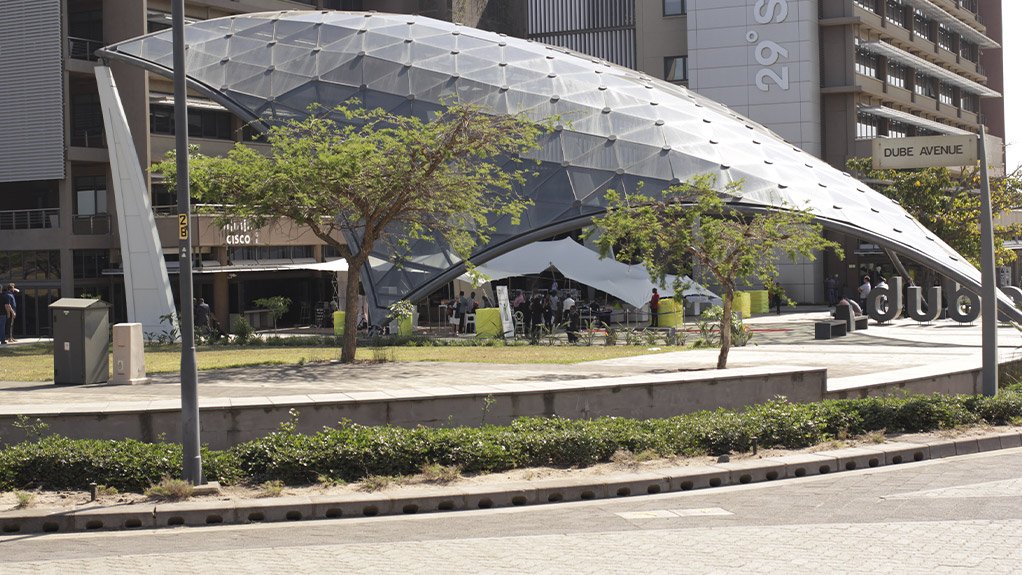/ MEDIA STATEMENT / The content on this page is not written by Polity.org.za, but is supplied by third parties. This content does not constitute news reporting by Polity.org.za.
KwaZulu-Natal-based Teqal, a specialist producer of biodegradable injection moulded rigid plastic packaging for cosmetics and industrial products, has been awarded a R50 million financing facility by the Industrial Development Corporation (IDC) to expand its factory at the Dube TradePort Special Economic Zone (DTPSEZ).
The company started a greenfields business four years ago in a mini-factory in the Dube Trade House. It had a “cherry picked” highly skilled team and a R39 million investment in high-tech equipment and automation to develop Africa’s first biodegradable cosmetics jar and a full wraparound in-mould labelled jar.
Globally plastic waste accounted for 6.3 billion metric tons in 2015 and is expected to double by 2050 according to Satista. The cosmetics industry is considered a major contributor producing an estimated 120 billion units of packaging every year, most of which is not recyclable.
“The only way to change the impact of plastic on the environment is at product level, and a biodegradable solution will have a major impact on the environment,” says Sean Kirkham, Teqal Sales & Marketing Director, who has been in the industry for over 20 years.
Teqal is a globally competitive owner managed business with highly experienced people who care. Over and above quality in all respects, it’s focused on the environment in their business and in the business of their clients. Not only is its product completely biodegradable, it is 30% lighter than its closest competitor and uses 60% less energy to manufacture. All of which adds to reducing its carbon footprint.
There are a lot of challenges in recycling, including the fact that some plastic products recycled once or twice cannot be recycled any further. “Our cosmetics packaging is not green washing. This is not about making people feel good. It is 100% decomposable and has no micro-plastics,” says Kirkham.
The bio-based material used to produce the external components is Seedling-certified. This is a Swiss certification that verifies the compostability of a product, according to the European standard EN 13432. If the components end up in the ocean, landfill, or are placed in soil, they will fully biodegrade and will not leave any microplastics behind.
Teqal’s strengths include the strategic registration of functional and technical designs and patents, along with in-house high-end packaging, tool-making and design experience – all of which are vital in generating value in the personal care and cosmetics industry.
Last year Teqal entered the Institute of Packaging Gold Pack Awards with its Reflections jar in the Health, Beauty, Medical and Pharmaceutical Packaging category and received its first award for innovation.
Since its start-up the company has expanded three times at the Trade House and currently takes up 750 sqm of space. Now with a major five-year contract in hand and financing to build their own factory, Teqal is looking to move to TradeZone 1 within the Dube TradePort. A new 2500 sqm factory with capacity to double in size is in the planning.
The benefits provided by being housed at the Dube TradePort SEZ made it an obvious choice for Teqal. Topping the list of benefits was security. The proximity to the King Shaka International Airport also rates highly. Kirkham has had more customers visit the factory in four years than in the entire 20 years at his previous factory elsewhere in Durban.
“It’s easy for people en-route another appointment to pop in for coffee and see what we are doing. There’s no better marketing than showing customers our factory and explaining our product. It’s invaluable.”
The mini-factory environment in the Trade House is also ideal for a start-up. The lease terms are flexible enough to give long-term lease security as well as enable the Teqal to easily move to bigger premises within the same zone. The infrastructure and ease of access for trucks is also noteworthy.
DTPC is an environmentally arduous place for businesses with strict requirements and regular audits. But for a company that uses solar power and energy-efficient servo-driven equipment and solvent free ink, it is easy to comply. Says Kirkham: “This is what we are about. The audits provide us with a benchmark against which we can judge, and it gives us a helping hand in the right direction.”
Issued By: Dube TradePort Corporation
EMAIL THIS ARTICLE SAVE THIS ARTICLE ARTICLE ENQUIRY
To subscribe email subscriptions@creamermedia.co.za or click here
To advertise email advertising@creamermedia.co.za or click here











